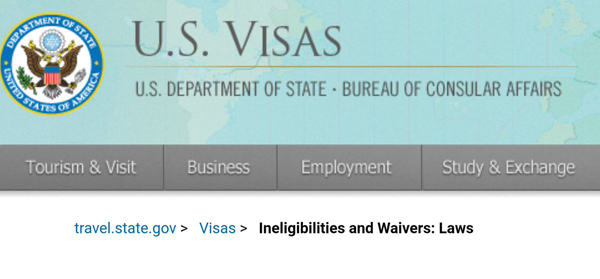Israel’s Entry Law, and America’s

You can love it. You can hate it. But at least be correct, contextual, and consistent when talking about it.
While that’s a universal best practice, in this case we’re talking about Israel’s new law restricting access to the country for some of those advocating boycott of the Jewish state.
We’ve already called on The New York Times to correct two errors in its editorial about the Israeli law. The editorial wrongly claims the US has “consistently held that settlement building in the occupied territories is illegal.” In fact, since the Carter administration it has consistently avoided such a characterization.
The editorial also misleadingly downplays BDS aims, claiming that the movement is merely “against Israel for its occupation of the West Bank.” As CAMERA and others (including BDS leaders) have pointed out, a trifecta of BDS goals essentially amount to a call for the elimination of the Jewish state.
Finally, the New York Times editorial, and a number of other media outlets, claim that the law bars entry to anyone who “supports” BDS. In fact, the law is worded much more narrowly, and refers not to supporters but rather anyone “who knowingly issues a public call for boycotting Israel that, given the content of the call and the circumstances in which it was issued, has a reasonable possibility of leading to the imposition of a boycott – if the issuer was aware of this possibility.”
One might think from the reaction abroad, including that of The New York Times, that the Israeli law is particularly unusual. What overseas critics of the law don’t mention, though, is that the United States has long had similar restrictions.
Section 212(a) of the Immigration and Nationality Act says that an alien “whose entry or proposed activities in the United States the Secretary of State has reasonable ground to believe would have potentially serious adverse foreign policy consequences for the United States is inadmissible.” That’s much broader than Israel’s language.
The Immigration and Nationality Act also bars members of the Communist party: “Any immigrant who is or has been a member of or affiliated with the Communist or any other totalitarian party (or subdivision or affiliate thereof), domestic or foreign, is inadmissible.”
And finally, it bars those who would break laws for the purpose of “opposition to … the United States”:
In general.-Any alien who a consular officer or the Attorney General knows, or has reasonable ground to believe, seeks to enter the United States to engage solely, principally, or incidentally in … any activity a purpose of which is the opposition to, or the control or overthrow of, the Government of the United States by force, violence, or other unlawful means, is inadmissible.
One wonders if American critics of the new Israeli law have also criticized these laws, which are much closer to home.
More from SNAPSHOTS
CNN’s Amanpour Condemns “power grab” By Israel’s Prime Minister and Others
April 1, 2020
We’ve said it often, but it’s worth repeating: Anyone interested in reasonably unbiased information about Israel (at least) should avoid the broadcasts of CNN’s Chief International Correspondent and Anchor, Christiane Amanpour. In characterizing responses to [...]
Seattle Media Oblivious To Imam’s Hateful Indoctrination Condemning Jews
January 7, 2020
The Masjid Ar-Rahmah mosque teaching – that Allah transformed Jews into apes and pigs for disobeying him – delivered by Imam (prayer leader) Mohamad Joban – was posted online by mosque personnel. This December 2019 [...]
AP Distorts: Bethlehem ‘Almost Completely Surrounded’
December 10, 2019
Over two years after improving inaccurate language falsely citing Israel's security "barrier surrounding the biblical city" of Bethlehem, the Associated Press once again misrepresents. AP's Joseph Krauss and Mohammad Daraghmeh wrote yesterday ("Palestinians in Bethlehem [...]
Reuters Errs on Administrative Detention For ‘Anti-Israel Activity’
November 5, 2019
The Ofer Prison, near Ramallah (Photo by Tamar Sternthal) A Reuters article today egregiously misrepresents administrative detention, erroneously asserting that it is mainly applied to "Palestinians suspected of anti-Israeli activities," when in fact the Israeli [...]


